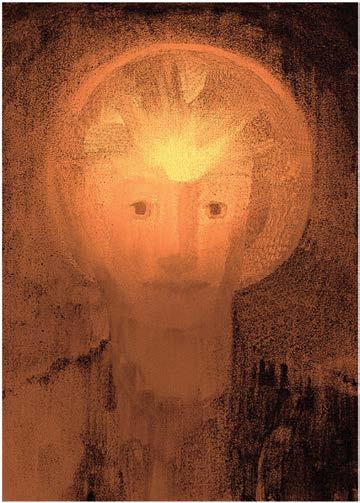
3 minute read
Rudolf Steiner: A Biography
by Christoph Lindenberg, translated by Jon McAlice. Limited-edition hardcover, 816 pg. SteinerBooks, 2012.

Advertisement
This is the most comprehensive biography of Rudolf Steiner currently available in English, an in-depth look at his life and work. (The first of seven English volumes of Peter Selg’s Rudolf Steiner, Life and Work is available.)
Christoph Lindenberg (1930-1999) studied history, English philology, philosophy, and pedagogy in Göttingen and Freiburg and from 1955 to 1980 taught at various Waldorf schools. After 1980 he wrote and lectured at the Department of Waldorf Education in Stuttgart.
Of the younger man, a student of Rudolf Steiner in the 1890s observed:
"I never again had a teacher like him. He was gaunt, shabbily dressed. He always wore an old coat; his trousers looked like corkscrews, much too short and worn out. At first he sported a van Dyke, then a mustache, then he was clean shaven.... Everyone loved him dearly, and I would have, as would most of the others, gone through fire for him.... He was loving and concerned in a way that I have never again discovered in another person. Funny—I often asked my fiancée whether he was really as poor as he seemed to be; during breaks he always took a dry roll out of his pocket and ate it with visible enjoyment. But if you think that they left him in peace during the break, you are way off base. The whole group gathered around him and the questions were endless."

Bobby Matherne’s review of the Lindenberg biography includes this summary of Rudolf Steiner’s goals at the other end of his life:
The Christmas Conference of 1923 brought the Anthroposophic Society into existence thanks to the strong will of Rudolf Steiner, who had previously stood on the sidelines and at this conference took over as President of the Society.
[page 674] Four weeks after the conference, he wrote in the newsletter, “Anthroposophy can only thrive as a living thing. The essence of its being is life. It is life flowing from the spirit. Hence it needs to be fostered by the living soul, in warmth of heart.” And shortly thereafter: “Essential to anthroposophy are the truths that through it become evident; essential to the Anthroposophical Society is the life that is cultivated in it.”
Once again we spot truths as Content and life as Process in his statement. For example, I can give you some Content, Karl Neilsen’s symphony The Inextinguishable, but only by listening to the symphony will you experience the Process, the life which one experiences while listening to the symphony.
Codices are dead maps of dogmatic statements, and Steiner wanted none of that in his Society.
[page 674, 675] Rudolf Steiner called the social tendencies that hindered life sectarianism and dogmatism. One of the peculiarities of the states is that he explicitly lists these two enemies of anthroposophical life: “The Anthroposophical Society is averse to any kind of sectarian tendency” and “A dogmatic approach in sphere whatsoever does not belong in the Anthroposophical Society.”
It seems to me that Steiner was saying in effect, “My karma has run over my dogma.” The dogma is dead stuff and deserves no place in this Society. To have an attitude of soul, there must be a place left for wonder, otherwise one can be left saying in chagrin: “No wonder, no soul.”
[page 675] Steiner included these two provisions in the statues based on the bitter experiences of the past years. Sectarianism expressed itself in a lack of interest for the surrounding world, the lack of openness for the world, an attitude of soul that had finished wondering about the world before it had been truly experienced. . . . True interest in the world cannot exist without the love for what is revealed in the world. It feels itself to be one with the world.
This spirit of being one with the world is alive today— I can attest to that from my February, 2013 visit to the Goetheanum with a group of Mi-cha-elic students from all around the world. Every one we met was interested in us and made us feel welcome.
Page numbers in square brackets refer to Rudolf Steiner: A Biography. From Bobby Matherne, A Reader’s Journal. [ www.doyletics.com/arj/rudolf.shtml ]










